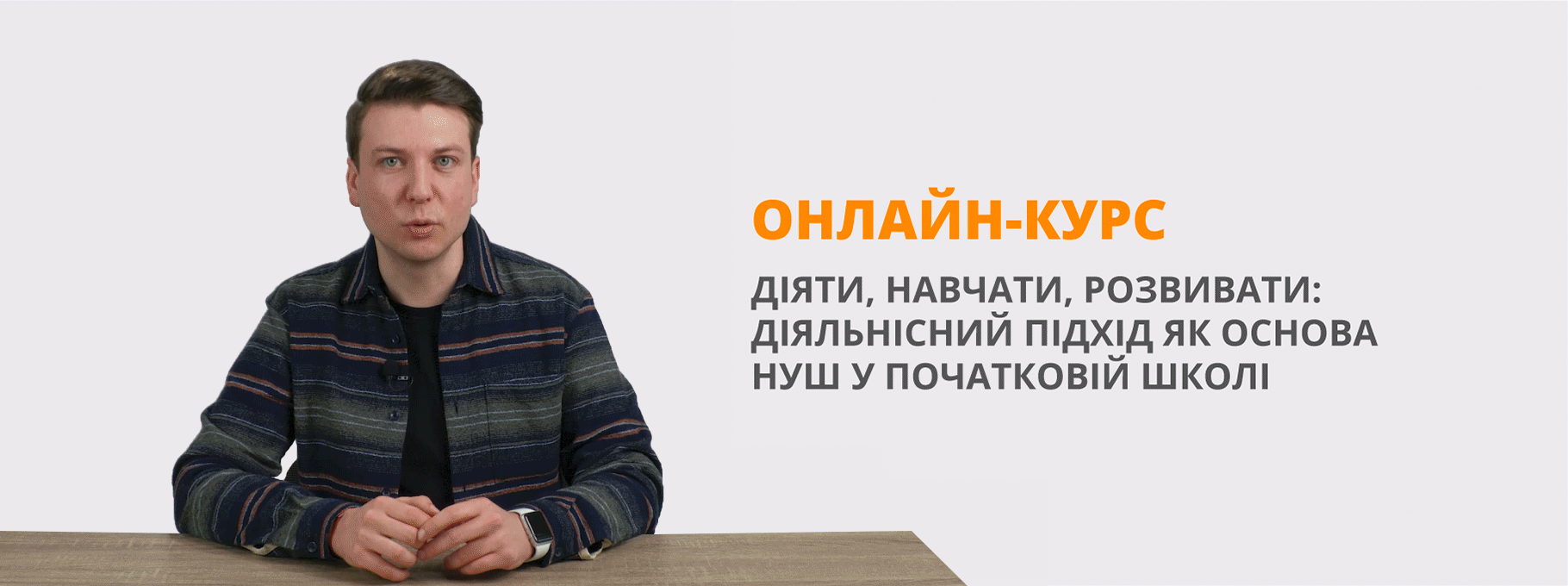Розгорнутий план- конспект "Підготовка до екзаменів"
1
20. 02. 2013
План-конспект практичного заняття з практики усного та писемного мовлення на 1 курсі з тематичного циклу «The System of Education»
Тема заняття: Preparation for the Exams
Тип заняття: з домінантою «Практика у спілкуванні»
Вид заняття: заняття з розвитку вмінь читання, монологічного мовлення, аудіювання і письма
Цілі заняття:
Практичні:
- навчити студентів читати текст «American Schools» з розумінням основного змісту прочитаного (формувати вміння ознайомлювального читання);
- розвинути вміння висловлювати свою точку зору щодо проблеми освіти як в Україні, так і за кордоном;
Освітні:
- поглибити знання студентів про правила підготовки до іспитів;
- сформувати уявлення учнів про навчання у різних навчальних закладах;
Розвиваючі:
- розвивати мовну здогадку та мовленнєву реакцію студентів;
- розвивати уяву студентів в умовах розігрування діалогу;
Виховні:
- виховувати культуру спілкування англійською мовою, розуміння потреби оволодіння новими лексичними одиницями для повноцінного спілкування;
- прищепити любов до систематичного самостійного навчання.
Допоміжні дидактичні матеріали: фонограма з вправами для звуків [p] та [b], «Exams» та їх надрукований варіант, відео «Випадок на екзамені», «Passive Voice, Present Perfect», ілюстровані картки зі словами та завданнями до них, картка з новими лексичними одиницями до тексту «American Schools» і сам текст.
Схематичний план заняття
I. Початок заняття:
1. Організаційний момент……………………………………......................….........2 хв.
2. Фонетична зарядка……………….………………………..……...……………….5 хв.
II. Основна частина заняття:
3. Перевірка домашнього завдання…………………………………………………7 хв.
4. Диктант…………………………………………………………………………….6 хв.
Ознайомлення з новими лексичними одиницями
5. Введення нових лексичних одиниць……………………………….…………….6 хв.
6. Автоматизація дій з новими лексичними одиницями…………………………10 хв.
Аудіювання «Exams».
7. Зняття лексичних труднощів...…………………………………………..……….2 хв.
8. Слухання тексту …………………...…………………...………………………....4 хв.
9. Інтерпретація прослуханого …………..…….……………………….…………..4 хв.
Вдосконалення вмінь діалогічного мовлення
10. Діалог на тему «Екзамени»….………………...…..……………………..….......7 хв.
Пояснення граматичного матеріалу
11. Повторення утворення пасивного стану…………………………….………….5 хв.
12. Пояснення утворення пасивного стану доконаних часів дієслова…………...4 хв.
13. Перегляд відео……………………………………………………………………3 хв.
14. Автоматизація дій з новим граматичним матеріалом………………….……...6 хв.
Розвиток умінь писемного мовлення
15. Перетворення активного стану в пасивний .……..…………………….............5 хв.
III. Заключна частина заняття:
16. Повідомлення домашнього завдання………..………..………..………..……...2 хв.
17. Підбиття підсумків заняття………………..……………………………..……...2 хв.
І. Початок заняття
Етап 1. Привітання, організаційний момент
Teacher: Good afternoon, everyone! How are you today?
Students: Good? Thank you.
T: I hope that you are enthusiastic about working effectively today. Give me the register, please. I’d like to mark the absentees.
Today we are going to talk about exams, how to prepare for them. I’d like to start our lesson with a funny video about exams.
(Студенти дивляться відео)
T: I think that you are bright student and you’ll never do anything like that.
Етап 2. Фонетична зарядка
T: Let’s start our lesson with a phonetic exercise. Today we are going to practice the English sound [p]. Now listen to the speaker who explains the pronunciation of this sound. We should pronounce it with aspiration.
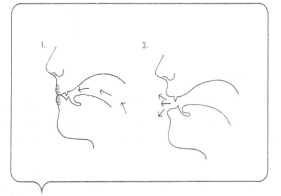
Close your lips hard.
Push air forward in your mouth.
Then open your lips quickly
Let’s do the experiment. Take a separate sheet of paper. One of its corners should be on the top. When you pronounce the sound [p], the sheet of paper should wave. You have a list of words. Listen to the speaker and repeat after him. You are to pronounce all the words with aspiration. Your piece of paper should move each time, when you pronounce the sound [p].
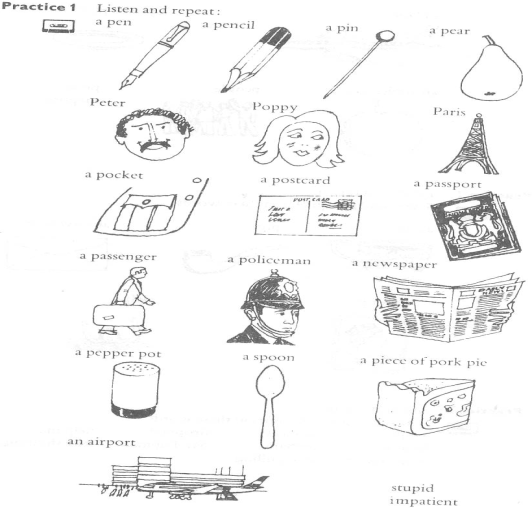
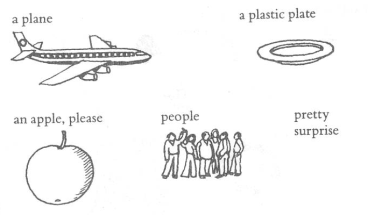
Listen to the speaker and tick the words you recognize in the following sentences
- A) pin B)bin
- A) Poppy B) Bobby
- A) pup B) pub
- A) pig B) big
- A) pack B) back
- A) peach B) beach
Keys: 1 B), 2 A), 3 A), 4 A), 5 B), 6 A)
II. Основна частина заняття:
3. Перевірка домашнього завдання
You had to read a text «American Schools» at home and complete the sentences with the correct words and phrases. Let’s revise the words that are necessary for this text.
Unknown words:
-
Advanced [
 ] повишений
] повишений
-
Fundamental [
 ] базовий
] базовий
-
Extracurricular [
 ] факультативний, позапрограмний
] факультативний, позапрограмний
-
Obligatory [
 ] обов’язковий
] обов’язковий
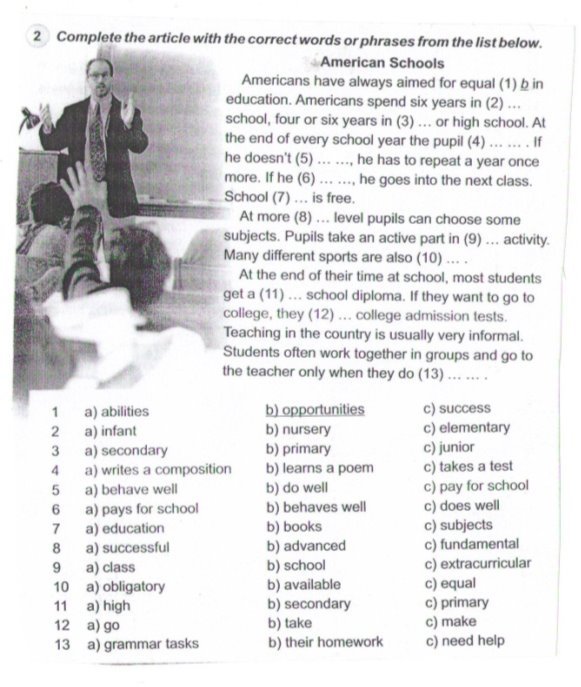
Етап 4. Диктант
- I am going to read the words. Your task is to write them down.
Infant school, college, sophomore, comprehensive school, fundamental level, boarding school, opportunity, junior, advanced level, «А» level exam, extracurricular activity, obligatory.
- Translate the following words into English
Дитячий садок - Nursery school, kindergarten
Першокурсник – Fresher, freshman
Початкова школа – Junior, primary, elementary school
Загальноосвітня школа – Comprehensive school
Приватна школа – Private, public school
Школа-інтернат – Boarding school
Ознайомлення з новими лексичними одиницями
Етап 5. Введення нових лексичних одиниць
Today we are going to talk about exams, preparation for them. Let’s define the meaning of some new words.
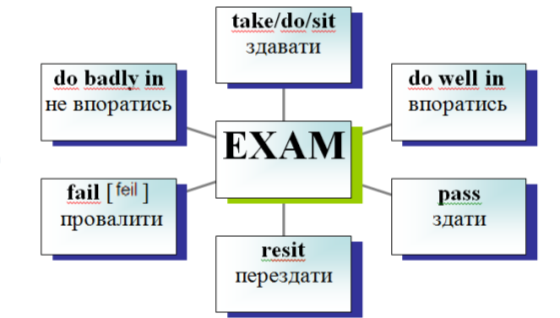
Look at the blackboard. There are some pictures. You have to find the necessary word combination for each of them.
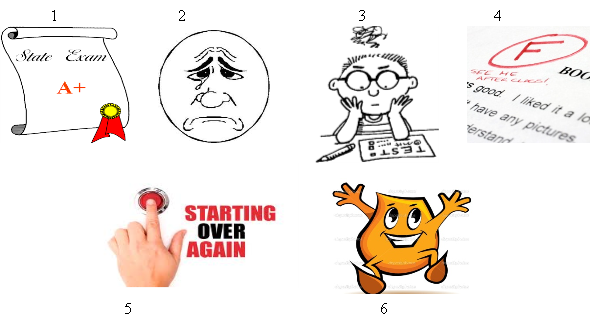
Keys: 1) pass 2) do badly in 3) sit 4) fail 5) resit 6) do well in
2. Read the text and translate it. Pay attention to the new words below.
Before an exam it's a good idea to revise for it. If you skip classes/lectures (miss), you'll probably do badly in the exam. Some schools give pupils tests regularly to check their progress. The school-leaving exams are held in May/June. In England, these are called GCSEs (age 16) and A-levels (age 18). In some schools, colleges and universities, instead of tests and exams there is continuous assessment with marks, e.g. 65%, or grades, e.g. A, B+, for essays and projects during term. If you pass your university exams, you graduate (get a degree), then you're a graduate and you may want to go on to a post-graduate course.
Vocabulary
-
Revise [
 ] перечитувати, проглядати
] перечитувати, проглядати
-
Skip [
 ] пропускати
] пропускати
- School-leaving exam – випускний іспит
- GCSEs – випускні іспити
- A-levels - екзамен із програми середньої школи на підвищеному рівні
-
Continuous assessment [
 ] – тривале (поточне) оцінювання
] – тривале (поточне) оцінювання
-
Essay [
 ] есе
] есе
-
Term [
 ] семестр
] семестр
-
Graduate [
 ] випускник (університету)
] випускник (університету)
[![]() ] закінчувати вищий навчальний заклад
] закінчувати вищий навчальний заклад
- Post-graduate course - аспірантура
- Tutorials [tjuːˈtɔːrɪəl] практичні заняття з керівником
-
Tutor [
 ] керівник групи студентів, репетитор
] керівник групи студентів, репетитор
-
Professor [
 ] професор
] професор
Етап 6. Автоматизація дій з новими лексичними одиницями
- Match the words to their definitions:
-
 resit (an exam) a) you do not get the minimum grade
resit (an exam) a) you do not get the minimum grade
- sit (an exam) b) take it again because you did badly first time
- pass c) you fail, or don't do as well as expected,wanted
- do badly in d) get a high grade
- do well in e) miss (classes) deliberately
- fail f) take (an exam)
- skip g) get the minimum grade or more
Keys: 1) b 2) f 3) g 4) c 5) d 6) a 7) e
2. Correct the mis-collocations in these sentences:
Example: I can't come out. I'm studying. I'm passing an examination tomorrow.
I can't come out. I'm studying. I'm taking an examination tomorrow.
- Congratulations! I hear you succeeded your examination!
- You can study a lot of different careers at this university.
- I’m so happy now. I have failed my exam.
- She's a professor in a primary school.
- He gave an interesting 45-minute conference in English.
Keys: 1) succeeded – passed 2) careers – subjects 3) failed – passed 4) professor – teacher 5) conference – lesson
- Let’s play a game. One of you should say a word, the next one have to repeat the previous word and add his/her own one.
![]()
![]()
![]() Example: Mark mark, pass mark, pass, resit mark, pass, resit, lesson
Example: Mark mark, pass mark, pass, resit mark, pass, resit, lesson
Аудіювання «Exams».
Етап 7. Зняття лексичних труднощів
Teacher: Now you are going to listen to two boys who are talking about their exams, about difficulties during taking them. Before listening you should know the meaning of some words:
Probably [![]() ] напевно
] напевно
Come out – стати відомими (про результат екзамену)
Pretty soon – досить скоро
Be with nose in the book – зануритись у навчання
Join the army – вступити в ряди армії
Етап 8. Слухання тексту
Mike: What did you think of the exams, Pete? I think they were dead easy.
Pete: Maybe they were easy enough for you but they were much too hard for me.
Mike: Oh, come on. You've probably done better than you think.
Pete: No, I'm certain I've failed in Latin, and most likely in French and History, too. Thank goodness it's all over though. We can forget about it now — at least until the results come out.
Mike. Yes. Now I can get on with reading all the books I've wanted to read for months, but haven't had time for.
Pete: What!... Well, it's up to you. I'm not going to open another book for months.
Mike: Well... I'll take a day or two off perhaps. But if I'm going to university in October, I'll have to get down to some serious work again pretty soon.
Pete: I've got to get through the A level exams first. I'll worry about university if and when I ever get there.
Mike: That's the trouble with you. You always try to do everything at the last minute.
Pete: And you're too serious; that's your trouble. You're always with your nose in the books.
Mike: Well, I like reading.
Pete: And I can't stand it. I don't know why I decided to try to go to university in the first place. I think I'll run away and join the army or something.
Етап 9. Інтерпретація прослуханого
Read the statements and put “T” if the statement is true and “F” if it is false.
- ____Mike thinks that the exams were very easy.
- ____Pete agrees that exams were easy.
- ____Pete thinks he failed some exams.
- ____Pete is going to read books now.
- ____Mike is going to enter the university in October.
- ____Pete has got to pass A-level exams.
- ____Pete is very successful in his study.
- ____Mike likes reading too much.
Keys: 1) T 2) F 3) T 4) F 5) T 6) T 7) F 8) T
Вдосконалення вмінь діалогічного мовлення
Етап 10. Діалог на тему «Екзамен вже завтра»
Make a short dialogue using the new vocabulary. Then you will perform it.
Пояснення граматичного матеріалу
Етап 11. Повторення утворення пасивного стану
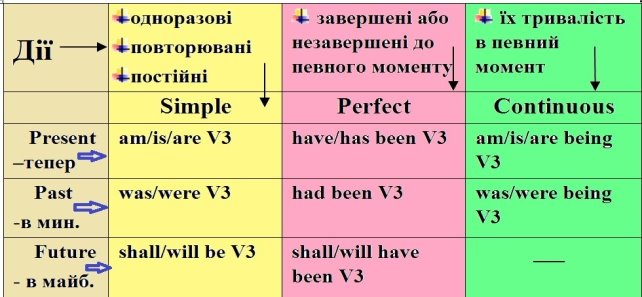
T: I’d like to divide you into two teams. Each will get a sentence in Active voice. You have to rewrite them in Passive one. Pay attention to the tense form.
Team 1: I write a poem without difficulties.
Team 2: They make a mistake in the sentence.
Keys:
Present Indefinite A poem is written without difficulties.
Past Indefinite A poem was written without difficulties.
Future Indefinite A poem will be written without difficulties.
Present Continuous A poem is being written without difficulties.
Past Continuous A poem was being written without difficulties.
Етап 12. Пояснення утворення пасивного стану доконаних часів дієслова
Passive Voice. Perfect Tenses
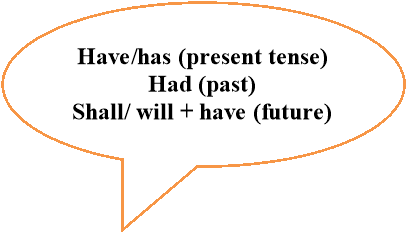
S + (have) + been + past participle
|
Singular |
Plural |
|
I have been given |
We have been given |
|
You have been given |
You have been given |
|
He has been given |
|
|
She has been given |
They have been given |
|
It has been given |
|
|
Singular |
Plural |
|
I had been given |
We had been given |
|
You had been given |
You had been given |
|
He had been given |
|
|
She had been given |
They had been given |
|
It had been given |
|
Етап 13. Перегляд відео
Now we are going to watch a video about Passive Voice. The native speaker will tell you how to make the sentences in Present and Past Perfect tenses, Passive voice.
Етап 14. Автоматизація дій з новим граматичним матеріалом
|
I They The house The cat The car |
has have |
been |
invited found built sold bought |
by that time when I cоme |
- Make the sentences using the words from each column.
- Complete the sentences in Passive Voice using the words in brackets:
Example: This house_______________ (build) by 2014. (Future Perfect)
This house will have been built by 2014.
- A patient___________(take) to hospital when we arrived; (Past Perfect)
- A book__________________(buy) for my mother; (Present Perfect)
- After she_____________(give) a present, all the quests ate the cake; (Past Perfect)
- They ______________(read) a wonderful story by then; (Future Perfect)
- We ______________ (show) Ternopil, when we arrived. (Past Perfect)
Keys: 1) had been taken 2) has been bought 3) had been given 4) will have been read 5) had been shown
Розвиток умінь писемного мовлення
Етап 15. Перетворення активного стану в пасивний
You have the sentences in Active voice. Your task is to rewrite them in Passive one.
Example: We have opened the present The present has been opened by us
- They have not read the book__________________________________________
- I had not closed the window when he came________________________________
- After she had cleaned the room, her mother let her watch TV___________________
- Emma had not done her homework by Saturday______________________________
III. Заключна частина заняття:
Етап 16. Повідомлення домашнього завдання
- You have to learn the new vocabulary by heart for the next time.
- Fill the gaps in this life story of a British woman with the words from the table.
|
grammar grant comprehensive evening classes futher/higher nursery teacher-training college primary |
At 5, Nelly Dawes went straight to ..........(1) school because there were very ......... (2) schools for younger children in those days. When she was ready to go on to secondary school, she passed an exam and so got into her local ........ (3) school.
Nowadays her own children don't do that exam, since most children go to a ............(4) school. She left school at 16 and did not go on to ...........{5) education, but she works during the day, then goes to ..........(6) at the local school once a week to learn French. She would like to take up her education again more seriously, if she could get a ...........(7) or scholarship from the government. Her ambition is to go to a .........(8) and become a school-teacher.
Етап 17. Підбиття підсумків заняття:
Today we have done a lot of work. We realized the importance of education in our life. You have learnt some new words, found out some interesting information about American schools and exams. You have developed your listening and speaking skills.
I appreciate your work today, especially I would like to praise______, ______ and ______. You were the most active and correct while answering. _______ and ______ should not afraid to express your thoughts.
I hope that you enjoyed today’s activities. The lesson is over. Thank you for cooperation. See you next time. Goodbye.


про публікацію авторської розробки
Додати розробку
